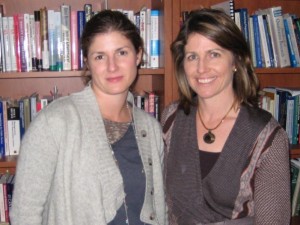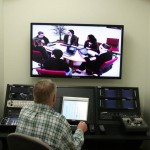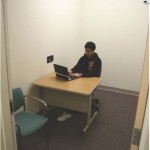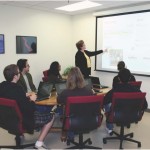September 2010
Paul Merage School of Business
Don Beall Center for Innovation & Entrepreneurship Seminar
Are Overconfident CEOs Better Innovators?
David Hirshleifer, Angie Low, Siew Hong Teoh
Paul Merage School of Business
University of California – Irvine
September 30, 12:00-1:30
Location: SB 112
(Host: Christine Beckman)
Lunch RSVP: Maria E. Gonzalez-Tan (email: mgonzal9@uci.edu)
For more information, contact:
Siew Hong Teoh
Dean’s Professor of Accounting
The Paul Merage School of Business
University of California, Irvine
steoh@uci.edu
October 2010
Department of Informatics Seminar
Handoff Communication Complexity in Critical Care
Joanna Abraham
AHRQ fellow
Center for Cognitive Informatics and Decision Making
School of Biomedical Informatics
University of Texas Health Science Center
October 4
11:00-12:30
Location: Donald Bren Hall, Room 5011
COR Faculty Meeting: Speed Dating
October 8, 12:00-1:30
Location: SE 1 room 306
Lunch will be provided
The Center for Organizational Research in Partnership with the Bren School of Information and Computer Science, presents
Introduction to the Bren School of Information and
Computer Sciences Behavioral Lab (Hanalab)
Friday, October 22nd
Bren Hall 5011
12:00-1:30pm
light lunch will be served
Department of Informatics Seminar
A Story About Storytelling
Brian Landry
Institute for National Security and Education Research (INSER), University of Washington
Friday, October 22nd
Time: 3pm-4pm
Location: DBH 6011
December 2010
Paul Merage School of Business Organization & Management Research Colloquium
Matthew: Effect or Fable?
Toby Stuart
Professor of Business Administration, Harvard Business School
December 2nd, 12:00-1:30
Location: SB 112
(Host: Christine Beckman)
Lunch RSVP: Maria E. Gonzalez-Tan (email: mgonzal9@uci.edu)
January 2010
Merage School of Business Strategy Colloquium
Mary Benner
Professor of Strategic Management, Carlson School of Management, University of Minnesota
Friday January 7th, 1:00-2:30
Location: conference room 306 (SB)
Merage School of Business Colloquium
Libby Weber
Merage School of Business, UC Irvine
Wednesday, January 19th, 3:00-4:30
Location: SB 223
The Beall Center for Art & Technology, Merage School of Business, the Department of Sociology, and the Center for Organizational Research present
Organizational and Institutional Genesis:
The Emergence of High-Tech Clusters in the Life Sciences
Woody Powell
Professor of Education, Stanford University
Friday, January 21st
12:00-1:30
Location: SB 117
The Center for Organizational Research presents:
Success in Publishing Workshop
Featuring a panel of faculty who have served as editors and editorial board members on top management journals
Featuring Panelists:
Judy Olson, ICS
Martha Feldman, Planning, Policy, & Design
David White, Sociology
Carroll Seron, Criminology, Law, & Society
Date: January 28th
Time: 12:00-1:30
Location: SBSG 1517
February 2011
The Merage School of Business Colloquium
Venting about work related annoyances: How the responses of third-party listeners impact the venter’s ability to problem solve
Kristin Behfar
Merage School of Business
Wednesday, February 2nd
3:00-4:30
Location: SB 223
Institute for Mathematical Behavioral Sciences Coloquium
Prosociality in Theory and Practice
Simon Levin
Department of Ecology & Evolutionary Biology, Princeton
Thursday, February 17
SSPA 2112
4:00-5:00 PM
COR Faculty Development Workshop
Expanding the Concept of Bounded Rationality in TCE:
Implications of Perceptual Uncertainty for Hybrid Governance
Libby Weber
Merage School of Business, UC Irvine
Assistant Professor of Strategy
Discussants: Phil Bromiley, Gary Olson
Friday February 18th
12:00-1:30
Location: SE1 room 306
COR Faculty Development Workshop
The Merage School of Business Presents
The reciprocal relationship between psychological contract fulfillment and employee performance and the moderating role of perceived organizational support and tenure
Jackie Coyle-Shapiro
Professor of Organisational Behaviour
London School of Economics and Political Science
Wednesday, February 23rd
12:00-1:30
SB 111
The Merage School of Business Colloquium
Learning from Successes and Failures in Mergers and Acquisitions
Yan Gong
Merage School of Business
Wednesday, February 23rd
3:00-4:30
SB 223
March 2011
The Center for Organizational Research, Department of Informatics, Merage School of Business, and Center for Ethnography present a Distinguished Speaker Seminar
More Tales from the Field
John Van Maanen
Sloan School of Management, Massachusetts Institute of Technology
Erwin H. Schell Professor of Managemen t
Friday March 4th, 12:00-1:30
Location: SEB 117
please rsvp to cor@uci.edu
Paul Merage School of Business Assistant Professor Colloquia Series
Knowledge, Recent Performance, and Risk Taking Under Performance: Evidence from the U.S. Banking Industry
Yu Zhang
University of California, Irvine
Wednesday, March 9th
SB 223
3:00-4:30 (reception will follow)
Paul Merage School of Business Strategy Colloquium
Corporate Strategy, Analyst Coverage, and the Uniqueness Paradox
Todd Zenger
Washington University, St. louis
Friday March 11th
1:30-3:00
SB 116
Friday Informatics Seminar
IT and (Un)sustainable Cultures
Bill Tomlinson
University of California, Irvine
Friday, March 11th
6011 Bren Hall
3:00-4:30
The Merage School of Business presents
Gerardo Okhuysen
Associate Professor, Management Department
University of Utah
Monday, March 28th
12:00-1:30
SB 117
RSVP: Maria E. Gonzalez-Tan (Email: mgonzal9@uci.edu)
April 2011
Institute for Software Research Distinguished Speaker Series
Social Intelligence for a Smarter Planet
Wendy Kellogg
Friday, April 1st
2:00-3:30
Bren Hall 6011
Social Hour to follow at 4:00
The Merage School of Business presents
The Value of Diversity in Teams? An Integrated Perspective
Kathy Phillips
Associate Professor of Management & Organizations
Kellogg School of Management, Northwestern University
Thursday, April 7th
12:00-1:30
SB 306
RSVP for lunch to gho (at) uci.edu
2011 TED AND JANICE SMITH DISTINGUISHED LECTURE SERIES WELCOMES
Knowledge Expression and Values in Information Infrastructures
Professor Geoffrey Bowker
School of Information Sciences, University of Pittsburgh
Thursday, April 14, 2011
11:00 am – 12:00 pm
Donald Bren Hall 6011
The Center for Organizational Research and the Department of Informatics Present
Routine Dynamics: Producing Stability and Change in Patterns of Action
Martha Feldman
Johnson Chair for Civic Governance and Public Management, UC Irvine
Friday, April 15th
3:00-4:30
Location: Donald Bren Hall Room 6011
The Merage School of Business Colloquium
The Logics of Mentor-Protégé Matching in Formal Mentoring Programs
Dennis Trapido
Merage School of Business
Wednesday, April 27th
3:00-4:30
SB 223
Workshop: Using Atlas.ti for Qualitative Research
Conducted by: Danielle Rudes, Ph.D., George Mason University
Friday, April 29th
Session for Beginners: 10:00am – noon, Social Science Lab 248
Session for Intermediate and Advanced Users: 1pm – 3 pm, Steinhaus Hall 174
Please contact Liz Chiarello (echiarel@uci.edu) to sign up
The Merage School of Business Presents
Zur Shapira
William Berkley Professor of Management
Stern School of Business, New York University
Friday, April 29th
Time TBD
The Merage School of Business Presents
Economic Effects of the Co-Evolution of Universities and Firms:
Tacit and Deeded Knowledge Protection and Acquisition
Lynn Zucker
Professor of Sociology
University of California, Los Angeles
Friday, April 29th
12:00-1:30
SB 112
May 2011
The Implicit Influence of Culture
Visiting professor Eric Uhlman, HED Paris, School of Management
Thursday, May 12, 2011
2:30-4:00 pm, SB 117
The Center for Organizational Research presents
Lean in Public Services: Panacea or Paradox?
Zoe Radnor
Warwick Business School
Friday, May 20th
12:00-1:30
SE1 room 306
The Beall Center for Science & Technology Presents
Where do new firms come from? Science and Innovation precursors of
de novo population emergence in nanotechnology 1970-2004
Kaye Schoonhoven
Professor of Organization and Strategy
UC Irvine
Thursday, May 26th
12:00-1:30
SB 112
RSVP to mgonzal9@uci.edu
June 2011
COR end of the year event!
Featuring research conducted by 2011/12 COR Fellowship Recipients
Friday, June 3rd
Room 306 SE1
12:00-1:30
Refreshments will be served



